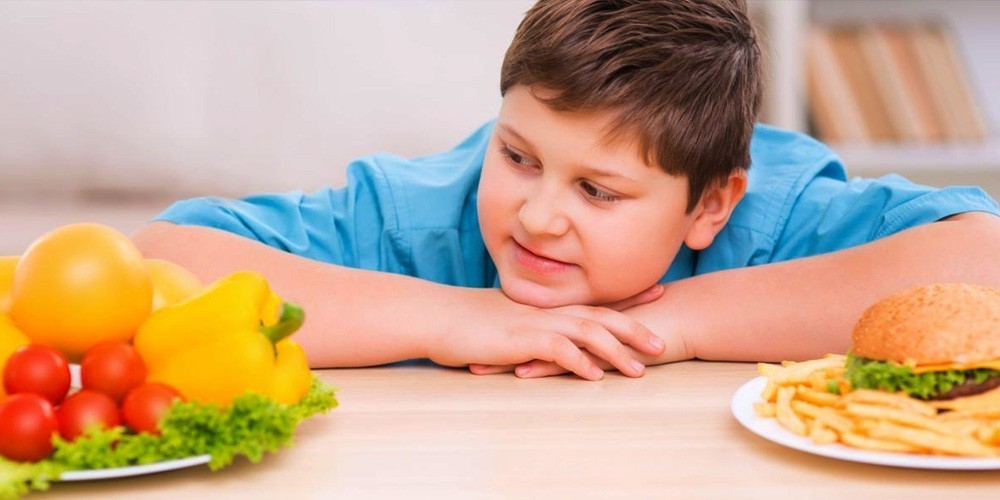The yelling and laughter of children playing in the close vicinity, chirping of birds around, coupled with the street noises soaring in maybe memories of your past, as fewer and fewer kids venture out nowadays to play and do activities together with their friends. Yoga has restored its position in the lives of people. Introducing Yogic Lifestyle from the very beginning helps to shape their choices in the long run.
Today’s urban children, with easy access to energy-dense foods, have rather befriended television sets, video games, packets of chips, and fizzy drinks. India, hitherto known as a country with poverty and malnourishment, is now slowly becoming a country filled with obese adults and children. This is more prevalent in India’s metropolitan cities; children are gaining weight that is not proportionate to their age and height.
Parents are much to blame; they are responsible for providing and inculcating good eating habits in their children. Make sure you are imparting the best of habits and lifestyle to your child, which will ensure your child’s long-term health and well-being.
Childhood obesity is a serious medical condition in which your child’s weight is above the normal weight for his or her age and height. The presence of obesity has penetrated the middle-income strata as well. Rapid urbanization and mechanization in these countries have brought about a significant transition in the lifestyle of adults as well as children, making them more dependent on machines and less on their own bodies. According to a recent report, the overall prevalence of obesity in urban children in New Delhi increased from 16% in 2002 to about 24% in 2006-2007. Apart from a sedentary lifestyle, there are certainly other factors that may trigger childhood obesity.
Contributing Factors
Genetic, psychological, socio-cultural collectively work towards increasing your child’s risk of becoming overweight. Let’s see how.
Genetic
When one of the parents is obese, the child has a 40% chance of being obese which obviously doubles when both the parents are obese.
Psychological
Your child may overeat to cope with stress or simply out of boredom.
In order to make your child focus, introduce them to yoga which has been proven to make yourself concentrate as well as understand their body needs. This may improve their consumption level and encourage them to practice Yoga regularly.
Child eating unhealthy snacks

Girl over-eating

Socio-cultural
A general perception that dwells in the common Indian mindset that a “plump child is a healthy child”, doesn’t always takes the right course. True, at every stage of development your child will be gaining some amount of fat and when fed adequately will add pounds in proportion to her growth. But the entire process turns topsy-turvy when in the efforts to keep your child healthy, you end up making him take in more calories than needed.
At times it is fuelled further with your family’s existing practices – such as stocking convenience foods and calorie-dense food in your pantry; lending money to children to purchase food from outside frequently, a savior that crops in when you are exhausted from work or have no time to pack your child’s lunchbox. All these only provide your child easy access to unhealthy high-calorie foods.
Complications
An obese child stands the risk of developing several health problems such as diabetes, high blood cholesterol, high blood pressure and fatty liver gradually as he ages. Besides, the increasing weight also acts as deterrence in the normal and smooth functioning of the respiratory system, making your child more prone to asthma and breathing difficulties (sleep apnea).
Other than the health implications, obesity may also affect the emotional well-being of your child. Who would like to be an object of mockery for thousands of people around? But obese children often tend to get teased or bullied by their peers. Your child may develop low self- esteem and may be even start remaining aloof and feeling depressed, on being constantly bombarded by insensitive remarks about his or her body shape. This can go on to affect his normal routine as well as his academic performance. So make way for communication so that your child is able to confide in you, and share his worries and anxieties with you.
Treatment and Lifestyle Modifications
Weight maintenance for very young obese children is considered as the first line of treatment. This is because it may not impede the developmental changes happening in the crucial years of their growth. Medications and weight loss surgery may be recommended, but in very rare situations.
Yoga if included in the lifestyle of young people could contribute alot to a healthier lifestyle for the future. We at Yog Power International have introduced a weight management program to lessen the burden from the parents to keep a track on everything.
Obese child staring at food

Make eating interesting
You can bring about a transition in your child’s perception of foods, by encouraging and making them actively participate in the process. Let them have their say when it comes to what they would want to have for supper. Some creative inputs secretly tucked in can dish up an interesting healthy combination. For e.g. a simple alu palak vegetable can be swapped for paneer stuffed green leafy kebabs or palak paneer. A skewered version of kebabs will be an even more interesting tidbit to relish. Let them also assist you in doing some pre-preparations.
Keep healthy snacks aboard in your pantry for kids to curb their hunger pangs. Fruits, nuts, homemade multinut chikki or laddoos (such as rajgeera/ puffed rice laddoo), granola bars, fruit custard, fruit chaat can serve the purpose.
Eat meals together
Eat meals together as a family by restricting viewing television or other activities at the same time. Time at the table can be a good way to learn about the happenings of your child’s day at school and sharing other conversations. This is because your child may eat hurriedly and won’t be able to keep a check on the amount he may be eating, while being concentrated over another activity (e.g. playing video games).
Limit outside food
Limit eating out at fast-food joints or restaurants frequently. If you happen to stop by, help your child eat wisely. Stick to small portions and half orders of a particular recipe. Soups, vegetable- based and grilled food items can be eaten in more amounts. Ensure that you and your child refrain from indulging in second helpings of main course dishes, as they are rich in calories.
Shun the following food items from your purchase list: pastries, buns, doughnuts, ready-to-eat convenience foods, sweetened beverages, aerated-drinks, desserts, deep-fired foods (such as samosas and kachoris) as they only help your child pile up calories without having any nutritive value.
Make sure your child remains active
Find out constructive ways to help your child stay active during his daily routine. TV hours and video gaming sessions should not be more than 1.5 to 2 hrs a day. Young children can be taught to play with their peers games like kho-kho, hide and seek, five-corners. Older children should be encouraged to join sports and walk or jog. Make sure the activity is enjoyable so that the child would want to make it routine. You can even opt for our Weight Management Yoga Online Program. Here we teach children to focus on their posture and health to make yoga enjoyable for them.
Besides this, allocate some time (60 minutes a day) everyday, for the child to do common household chores. This can range from vacuuming the carpets to doing the dishes to fetching the grocery from the near-by shop. This will help your child accomplish meaningful tasks and also help you in the process. Children should also be encouraged to take up activities they love such as swimming, kite-flying, gardening, cycling or even walking down to a nearby park. But sometimes due to busy schedule of parents as well as children all of this is a bit hectic. So we at Yog Power International are herefor your Yoga rescue.
Remember that “Childhood obesity is best tackled at home through improved parental involvement, increased physical exercise, better diet and restraint from eating.” Bob Filner

